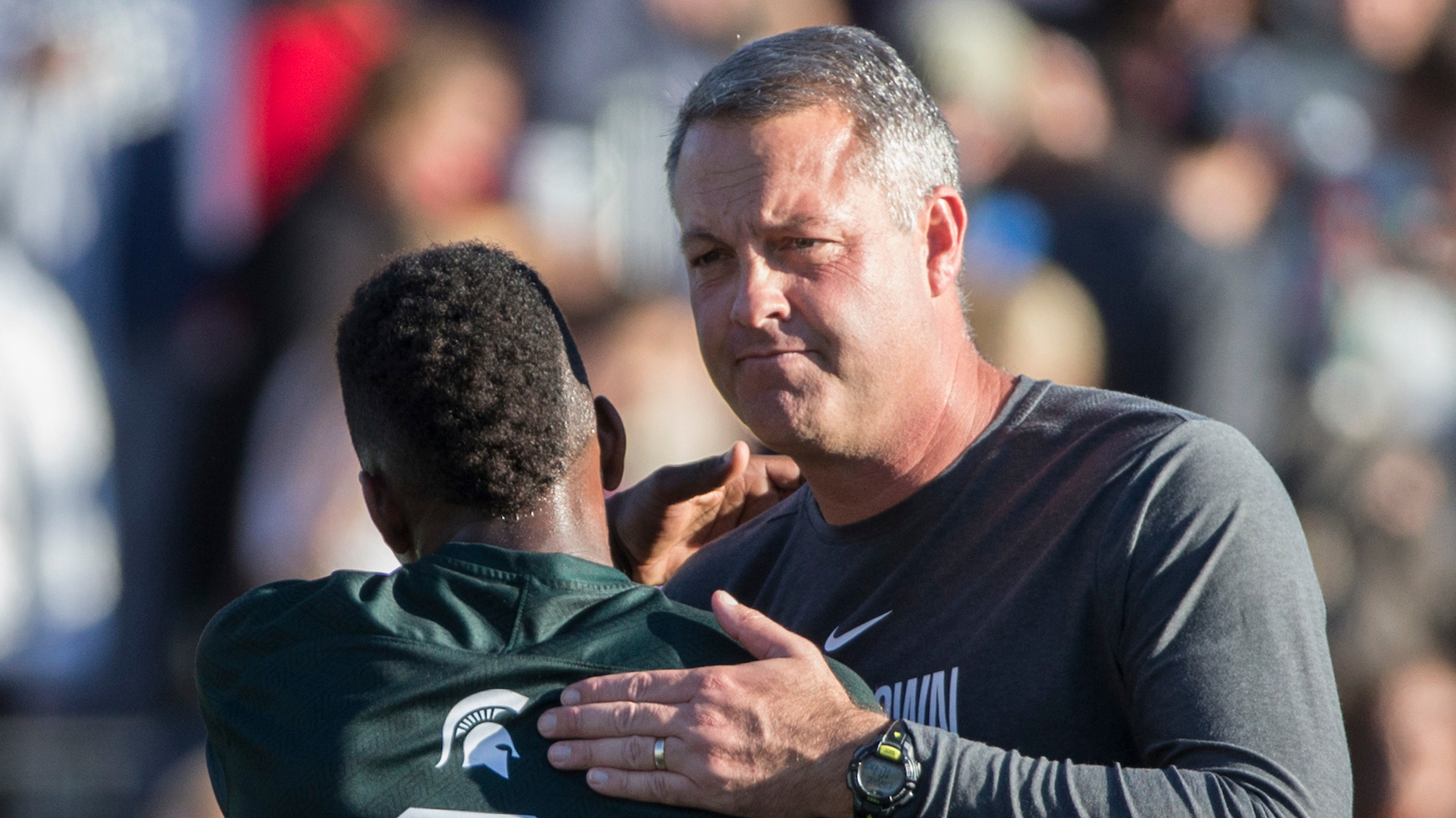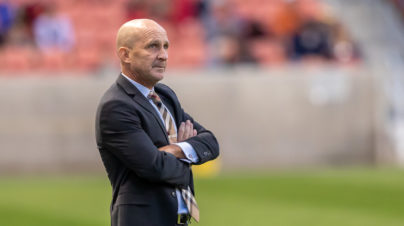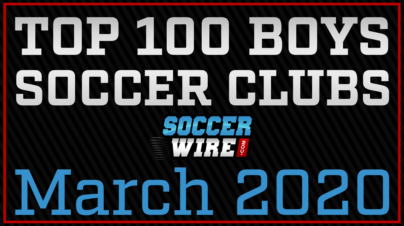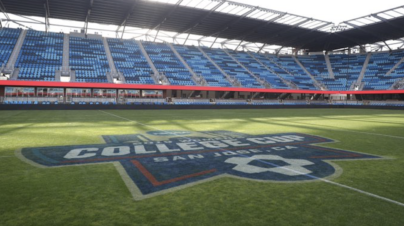NCAA champion head coach Brian Wiese: ‘We rely heavily on camps as recruiting vehicles’

For youth soccer players looking to be recruited, there is a seemingly endless supply of camps to attend and tournaments to play in, with no clear answers for which options will truly maximize their opportunities for the college level.
Throughout their high school and club soccer careers, youth players and their families find themselves in a continuous search for the best opportunities to be seen by coaches from the college programs that will prove to be the right fit. Meanwhile, they aim to avoid camps and showcase events which wind up being wastes of time and money.
Georgetown University men’s soccer head coach Brian Wiese, coming off his team’s NCAA College Cup championship run, recently joined The SoccerWire Podcast to discuss a wide range of topics, including several aspects of the college soccer recruiting process. In the interview, Wiese shared some insights for prospective college soccer players and their families, in light of some of the new recruiting rules instituted over the past year by the NCAA.
[+READ: NCAA champion Georgetown men’s soccer unveils No. 2 ranked recruiting class]
As most people who follow college recruiting are aware, the NCAA recently instituted a new set of rules to combat early verbal commitments by high school underclassmen. Wiese highlighted a significant component of those new rules, which have eliminated the ability for college coaches to contact high school freshmen and sophomores directly. According to Wiese, the closest thing to a workaround for the new restrictions is for college coaches to send camp information to prospective underclasmen recruits:
“The NCAA rules are shifting now that if someone is a freshman or a sophomore, and we’re sitting down watching a game and the kid is special, we used to be able to go home and call his club coach and say, ‘That player is pretty great. Have him call me so we can talk, or bring him to campus so we can show him around and talk.’
Now, they’ve changed the rules so that if we see a freshman or a sophomore and they’re special, we can’t do any of that. We can’t call and talk to the coach about him. If the coach calls us and says ‘Hey, what do you think, are you going to recruit him?’ We have to say we can’t talk about him until he’s a junior. Those restrictions are very real.
The only thing the NCAA actually lets us do is send camp information to those kids. That’s it. So everyone is getting that same thing, and some of these are real money-makers [for college programs]. For us, we just use our database. If anybody writes us, we’ll put them in our system and send them camp info. If we see a kid we like, we’ll enter him in our system and send him camp info. It could be someone who sent us something, or it could be someone we think is really good. They still get the same thing.”
With camp invitations being the most direct form of allowable contact from college coaches to high school underclassmen, the new NCAA rules have amplified the importance of camps as a recruiting avenue. The use of camps have also helped reduce the amount of year-round travel required for some college coaches on the recruiting trail, but showcase tournaments still play a big role as well.
Wiese and other college coaches around the country have not stopped watching underclassmen play at showcase tournaments or in league competition just because NCAA rules have banned direct communication. Many players who receive invitations to college identification camps were initially spotted by coaches at tournaments. And many of the players that college coaches watch at tournaments were initially spotted at one of their camps, says Wiese:
“We rely heavily on camps as recruiting vehicles. We’ll either see kids we like [at tournaments] and try to get them here [for camp] so we can work with them, or we’ll see them at camp and we’ll try to get back out and see them with their club team.
We do one or the other: we’ll see them initially with a club team and then we work with them [at camp], or we will work with them at camp first, and then go and see them with their club team. That ensures an exposure to what the kid is good at, what their work ethic is like, and those things which is the value of camps.
But camps themselves are really touchy endeavors. How are you going to find the right camp where you’re really going to be seen in a competitive environment where [a college coach] is going to really feel good about what they’re seeing?”
To listen to the full podcast episode with Wiese and SoccerWire resident analyst Charles Boehm, Click Here, or use the buttons below to subscribe to The SoccerWire Podcast.














